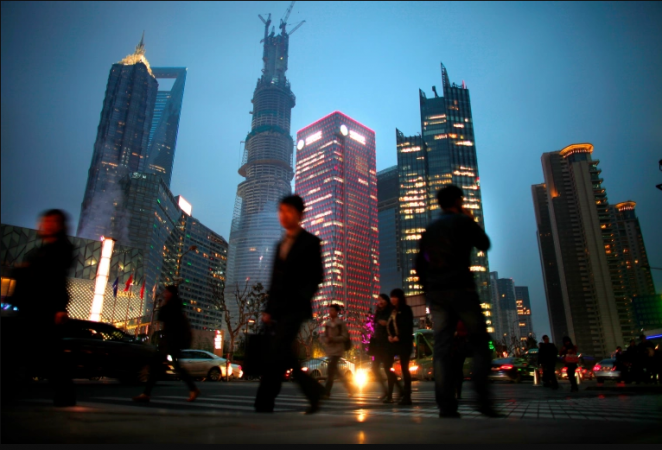
BEIJING: China's economy continued its uneven recovery in October as industrial output rose higher than anticipated, but continued coronavirus disruptions resulted in a "sharp decline" in retail sales, according to data released on Tuesday.
The National Bureau of Statistics (NBS) reported that a measure of activity in the industrial production, manufacturing, mining and utility sectors, grew 5% in October compared to the same month last year.
This was down from 6.3% growth in September and in line with Wind's forecast of 5% growth. Wind is a leading provider of financial information services in China.
Also Read: 'If food crisis arises, you'll not...,' PM Modi's message to world at G-20 Summit
Although it was predicted that retail sales would increase by 1.8% in October, they actually fell by 0.5%, slowing from a 2.5% increase in September.
Fixed-asset investments, a measure of spending on things like infrastructure, real estate, machinery and equipment, which Beijing has relied on to cushion the risk of a recession this year, grew 5.8% in the first 10 months of the year , down slightly from the 5.9% growth from January to September.
The unemployment rate in urban areas stood at 5.5% in October, unchanged from September, while the rate for those aged 16 to 24 remained alarmingly high at 17.9% in October, unchanged from September as well.
NBS said in a statement, "We will continue to drive effective demand growth, drive supply-side structural reform, maintain price and employment stability, stabilize expectations, enhance market vibrancy, strengthen the economic recovery on a solid footing and achieve Will focus on trying to do that." Better development results.
On Monday, China recorded more than 17,700 new coronavirus infections, with several major cities, including Beijing and Guangzhou, experiencing a surge in cases that prompted more restrictions and neighborhood lockdowns.
“The October figures indicate further loss of momentum, with a sharp drop in retail sales amid the worsening virus outbreak. It looks like November will be worse.
Also Read: Boeing: Sustainable aviation fuel is essential to the decarbonization
The near-term outlook is that exports are slowing, the real estate market is still struggling, and the zero-Covid policy is likely to last longer than many anticipated, according to Capital Economics economists Zichun Huang and Julian Evans-Pritchard.
Retail sales fell sharply last month. This happened after Shanghai retreated into negative territory for the first time since the lockdown. This is because the number of cities experiencing outbreaks has risen to levels last seen during the height of the Omicron wave due to an intensification of virus dissociation infections during the second fortnight of October.
The People's Bank of China on Tuesday also kept the interest rate on loans taken for one year through its Medium Term Loan Facility (MLF) at 2.75 per cent.
Chinese Prime Minister Li Keqiang briefed International Monetary Fund (IMF) Managing Director Kristalina Georgieva on Saturday about the country's economic situation.
Li told Georgieva in Cambodia's capital Phnom Penh that China had swiftly implemented a policy package to stabilize the economy and take follow-up measures after key economic indicators began to decline earlier this year.
The economy is currently showing a steady upward trend, and the actions were able to "reverse the downward trend over time", he said.
Li made his remarks amid growing concerns about the wider implications of China's strict zero-Covid policy, which saw a return to lockdowns and mass testing in October.
Recently, China eased some coronavirus containment measures, such as reducing the duration of the quarantine period for foreign arrivals, but has not provided a timeline for abandoning its zero-Covid policy.
Also Read: China 'reversed' its decline in growth with timely policy changes
Since late last week, a 16-point plan has been unveiled to support the real estate industry, as well as 20 measures to relax some of the country's strict coronavirus rules, including close contact and This includes shortening the quarantine period for foreign arrivals.